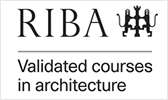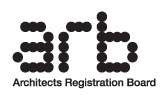Overview
Building a great future
Our undergraduate and postgraduate apprenticeship programme is intended to provide the three stages of education and training, which when successfully completed, will satisfy the Architects Registration Board requirements for registration as an architect in the UK.
Architecture is an extraordinary first degree to study. On this highly creative course, you'll learn to draw, model, write and, above all, solve problems which directly improve our society. The degree you'll attain will be Architecture BA (Hons).
The work of an architectural assistant the first step to registration as an architect is acquiring the RIBA part 1 qualification, enabling apprentices to continue their work in practice while studying a professionally-validated degree as an architectural assistant.
Architectural assistants work in organisations of varying sizes, from small practice to large multi-disciplinary organisations. They can be based at locations within project design teams, on site, or a combination of both. Because their skills are transferable, they may work for other construction and design related businesses (e.g. property consultants, construction companies, planning authorities or interior designers).
In collaboration with other members of a project team, architectural assistants respond to client requirements by preparing, reviewing, and refining building design through various media such as 3D modelling, drawings, and model making.
Duration
The course is 4 years part-time. Apprentices usually attend university one day per week for the 15 week first semester, and one day per week for the 15 week second semester. The day at LSBU will always be known well in advance to enable apprentices to plan their working week in practice, and does not vary from week to week.
The full apprenticeship standard and assessment plan can be found on the Institute for Apprenticeships.
Apprenticeship Employment Guidelines
Apprenticeship Evidence Pack Guidance
Why Architecture at LSBU?
- star
- Our roots in London Council School of Building (1904) and Brixton School of Building (1940) mean that LSBU has offered architectural education for over 100 years.
- check-circle
- Professional accreditation – the course is fully validated by the Royal Institute of British Architects and prescribed by the Architects Registration Board.
- check-circle
- 94% of students on this programme said that it was easy to contact teaching staff when needed. (National Student Survey 2023).
- bullseye
- Experience - with roots in London Council School of Building (1904) and Brixton School of Building (1940), LSBU has been offering architectural education for over 100 years.
- heartbeat
- High earning potential - our Architecture, Building and Planning graduates have a median graduate salary of £37,200 - the second highest graduate salary for this subject area in the UK (2023 LEO Data)
- graduation-cap
- Our students regularly win prestigious RIBA Awards.
Explore life as an Architecture student
| ModeApprenticeship | DurationUp to 48 Months Practical Period & 6 Months EPA (48 months) | Start dateSeptember | Application code5369 | Application method Direct to LSBU |
Watch our video to see how you can make yourself at home studying at LSBU.
Location
London South Bank University student union is located at 103 Borough Rd, London SE1 0AA.
If you are visiting our Southwark Campus, you may wish to use our downloadable campus map (PNG File 466 KB). For information on accessibility, see our DisabledGo access guides. See our location page for more details.
Entry Level Requirements
Need further information? Call us on 0800 923 8888 to discuss entry requirements.
- A Level BBC or;
- BTEC National Diploma DDM or;
- Access to HE qualifications with 15 Distinctions 30 Merits or;
- Equivalent level 3 qualifications worth 128 UCAS points (must include an art or design subject)
- We require a portfolio of work to be submitted.
- Applicants must hold 5 GCSEs A-C including Maths and English or equivalent (reformed GCSEs grade 4 or above).
- Architecture Portfolio see guidance here
Non-academic entry criteria, for example requirements set by professional or sponsoring bodies:
- Confirmation of employment offer in architect’s practice registered as hosting L6 apprentices
Choose your country
Select country here:
Missing English and Maths qualifications?
If you do not have the required English and Maths qualifications needed to satisfy the entry requirements for this programme, we have courses available at our partner College that you can take to upskill in these areas. Find out more at South Bank College.
Funding
The cost of the apprenticeship is paid fully by the employer (sometimes part funded by the government) through apprenticeship levy. The apprenticeship levy is a pot of money some companies pay into, which all businesses have access to spend on the training costs of apprenticeships. Companies fall into two categories: levy-payers (who pay into the pot) and non-levy payers (who do not). You can find out more in our Levy and Funding section, specifically for employers
The apprentice does not contribute toward the cost of study.
Bands
Apprenticeship standards are all assigned a funding band by the Government – these funding bands are the maximum amount the Government will fund via the levy towards a given apprenticeship standard. There are currently 30 funding bands ranging from £1,000 to £27,000.
Incentives
Employers with less than 50 staff sending an apprentice aged 16-18 will have 100% of the training costs paid by the government. All employers who employ an apprentice aged 16-18 on the first day of teaching will receive a £1,000 incentive from the government. You can find out more in our Levy and Funding section, specifically for employers.
Cost
You can find out the funding band for an Apprenticeship Standard on the Government website. To find out how much we are charging, please get in touch with us at apprenticeships@lsbu.ac.uk
Field trips
Some modules include field with and site visits, which may be residential or outside the United Kingdom, ranging from three to five days. These are organised by the Division and students are required to contribute towards the cost. If there are any field trips or any course visits as part of your course, we will let you know in good time.
Home
| Mode Apprenticeship | Duration Up to 48 Months Practical Period & 6 Months EPA (48 months) | Start date September | Application code 5369 | Application method Direct to LSBU |
An Apprenticeship Standard is comprised of a programme of study, an End Point Assessment and on-the-job learning. This means that in addition to meeting academic requirements, you’ll need to be employed in a role related to your apprenticeship. The process of applying depends on whether you have an employer to sponsor (and support) you.
If you are employed and your employer has confirmed they will support your apprenticeship:
You are welcome to submit an application via our application system. You’ll need to provide details of your employment/employer as part of the application. You’ll also need to ensure you and your employer meet the requirements – find out who can be an apprentice to see if you meet the entry requirements and employer commitments to find out more about your employer’s role.
If you are not employed:
- You will need to find a job role related to the apprenticeship you wish to apply for, with an employer who is happy to support you. If you would like to find an employer to support your apprenticeship with LSBU, you can search which employers are currently advertising Apprenticeships via the National Apprenticeship Service website searching for ‘London South Bank University’ as keywords.
- If there are no search results, this means there are currently no vacancies. We update our vacancies regularly, so please do check back regularly.
- Many employers advertise their apprenticeship vacancies on their websites or via other portals. You could search for ‘find an apprenticeship’ online.
- When you’re ready to apply, see the government's advice on how to write a winning apprenticeship application and make your application.
Further information for apprentices
If you’re a prospective apprentice, you can find out more about who can be an apprentice on our student pages.
Further information for employers
If you’re an employer, you can find information about the employer commitments and further related information on the related pages for business.
See our admissions policy 1.5 MB and complaints policy 516.0 KB.
Prepare to start
There are steps the apprentices, the employer and the University need to complete before you start your course. Take a look at the steps to be completed in the Enrolment section. Employers may also like to look at our steps to offering an apprenticeship.
This is a highly creative course where design project work is the focus of our studio culture.
Year 1
Semester 1
- Design 101 (20 credits)
- Technology 1 (10 credits)
Semester 2
Year 2
Semester 1
- Communication 1 (20 credits)
- Cultural context 1 (20 credits)
Semester 2
Year 3
Semester 1
- Design 201 (20 credits)
- Technology 2 (10 credits)
- Technology 3 (lectures only / 0 credits)
Semester 2
- Design 202 (40 credits)
- Technology 2 (10 credits)
Year 4
Semester 1
- Design 301 (40 credits)
- Professional practice (10 credits)
Semester 2
- Design 302 (40 credits)
- Technology 3 (coursework / 10 credits)
- EPA portfolio and practice report (20 credits)
Introduction to modules studied
- Design The acquisition of design skills and knowledge is central to the programme of study, and these are learnt through studio activities and the completion of design projects. A creative as well as analytical approach to designing is encouraged using models, drawings, and computer graphics to explore design concepts. As the course comprises over 50% of its content as design, it should be understood success in this curricular area is central to the course.
Studio activity also includes learning how to communicate ideas, both verbally and visually, to tutors, students, and fellow apprentices. The presentation of work and the feedback received is referred to as a crit, or review of your work. The crit/review is an opportunity to explain an individual approach to the design process and to clarify ideas; attendance at all crits/reviews is essential. At the crit/review, everyone will receive verbal and written feedback from tutors and guest critics responding to the project that has been reviewed. At interim and final crits apprentices will usually be given a crit sheet by the studio tutor to serve as a reflection of the work’s quality and to give guidance that must be responded to. - Technology Construction and environmental technologies are integral parts of the design process from conceptual idea to final proposal. At undergraduate level, the principles of these technologies are learnt and this knowledge then developed and applied to key design projects in the programme. The technology and environment syllabus is delivered in lectures, and then assessed by means of coursework as an integral but discreet part of design studio work. Apprentices can use their knowledge of these technologies as a driver in their architectural thinking, or subsumed by other design influences.
- Cultural context The cultural context input comprises History and Theory courses. The history and theory courses position the individual student experience within the wider subject area of architecture, establishing views regarding the role of architecture within culture, the ethical and rational critique of architecture, and the application of philosophical thought to architecture.
As well as establishing rigour in thinking, critical investigation, the application and organisation of research, writing skills, and referencing, studies in the history and theory of architecture encourage students to be aware of precedent. Precedent refers to the analysis of previous works of architecture, and how diverse design methodologies inform your own proposals in the studio. Historical and theoretical understanding allows students to judge the relative success of various design approaches against criteria including building performance, scale, form, social consequence, and historical significance. - Communications Communications involves both analogue drawing and modeling, and the acquisition of advanced digital design skills. Communications 1 introduces 2D and 3D analogue and digital drawing; Communications 2/Digital Media covers the basics of 3D computer modeling and fabrication, and is connected to development of a design project. The teaching of advanced digital drawing software is an essential part of employment in an architect’s office. Apprentices are required to supplement all taught workshops with extensive, self-managed practice in all digital technologies.
- Professional practice All apprentices are introduced to professional practice through a series of lectures and case studies. The views of practitioners, and of representatives from the professional and statutory bodies are both represented in the lecture series. Apprentices are required to manage and appraise their own working practices with regard to their work. They are taught how to prepare a CV, and to search for work (where relevant). Apprentices are also encouraged to participate in the RIBA Mentoring Scheme which will again be offered to FT3 and PT5 students (as well as apprentices) this year.
Careers
Employability Service
By completing the apprenticeship route, you’ll have the advantage of having real-world work experience, working in a role related to your area of study. This will give you a competitive edge among other graduates when you complete your apprenticeship standard.
During your studies – and for two years after you graduate – you’ll have access to our Employability Service, who can help you develop your skills through the Careers Gym workshops and presentations. Our JobShop advisers support students and graduates with finding the right job for them.
We are University of the Year for Graduate Employment - The Times and Sunday Times Good University Guide 2018.
Taking this course and becoming an architectural assistant is a cost and time effective means to the first of three stages in becoming professionally qualified. The course is leads to the award of Architecture BA (Hons) and the professional award of RIBA part 1.
We aim to develop apprentices’ understanding – and practical application – of the following issues:
- architects are involved globally in creating a range of buildings and spaces, which not only house people and facilitate their activities but reflect the shared beliefs and values of their societies
- the scope of architecture involves the conception, elaboration, and production of those spaces, buildings, cities, and landscapes forming the built environment
- design as the central focus of the LSBU architecture programme where this is understood primarily as a critical, reflective, and analytical cultural practice. Design has a reciprocal relationship with areas of specialist knowledge including histories and theories of architecture, constructional and environmental technologies, and professional skills
- the value of a creative and focused education, and rigorous programme of study for apprentices from diverse backgrounds already working in practice and who wish to become professionally qualified architects
- the intellectual capacity required to think critically, and the practical skills to develop and communicate design ideas through processes of thinking, making, and designing students engage with the material, social, and environmental issues of the contemporary world, drawing inspiration from that world and the world of imagination
London South Bank University has a long established history of part time professional courses, and enjoys excellent links with all disciplines within the construction industry.
We have excellent studios, workshops, and AV facilities on site (including advanced digital fabrication equipment), and an architecture team who are committed to every apprentice realising their ambitions.
The course is unconditionally validated by RIBA and offers the professional award of RIBA part 1 on successful completion. The regular validation cycle ensures that your work is carefully sampled by peer reviewers to ensure course content and outputs retain close relevance to professional practice. The course and qualification is also prescribed by the Architects Registration Board.

- The professional membership body, the Royal Institute of British Architects (RIBA), champions better buildings, communities, and the environment through architecture.

- The Architects Registration Board (ARB) is the UK's statutory body for architects.
Guest lecturers
Recent guest lecturers include:
- Roz Barr (principal of Roz Barr Architects, and recipient of the 2012 AJ Retrofit Award)
- Professor David Gloster (RIBA Director of Education)
- Michael Pawlyn (project architect for the Eden Project)
- Professor Peter Salter (architect of the acclaimed Walmer Road housing scheme, and professor of architecture at the Welsh School of Architecture)
- Alex de Rijke, founding partner of dRMM, former Dean of the Royal College of Art
- Carolyn Steel (author of The Hungry City)
- Carl Turner (RIBA Manser award winner for the Slip House, Brixton)
- Mike Weinstock (Director of Research at the Architectural Association, and Director of the Emergent Technology Master of Architecture programme)
Teaching and Assessment
Learning on an apprenticeship offers a combination of academic education and practical training; it is learning informed and enriched by professional practice. Apprentices are required to attend a combination of tutorials, workshops, lectures, seminars, and site or building visits (the latter other than those undertaken in the workplace). The course is principally taught by staff in the division of architecture, although in some instances staff from other departments and disciplines are involved. Where possible, tutors and guests from outside the university are also invited to present lectures and provide specialist inputs to a particular subject area or project.
Studio structure
Central to the LSBU concept of postgraduate architecture education is the studio system, operating across part and full-time courses. The studios provide a framework for a range of relevant intellectual and practical specialisms to inform design work.
View the School of the Built Environment and Architecture Catalogue 2018/19.
People profiles

Register your interest
Apprentice Guide
Download our guideContact information
Course Enquiries - UK
Tel: 0207 815 7500




